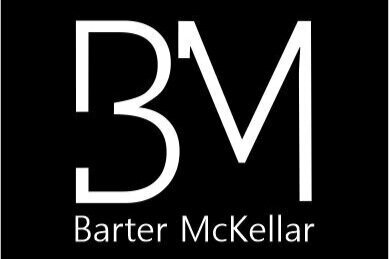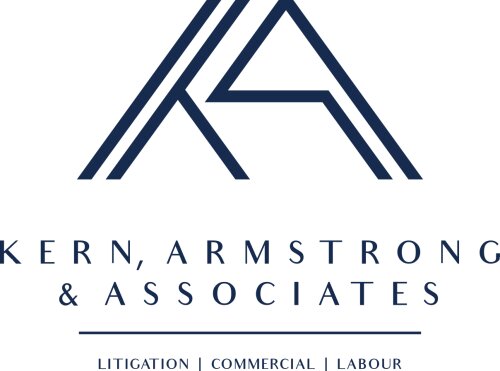Best Nonprofit & Charitable Organizations Lawyers in Randburg
Share your needs with us, get contacted by law firms.
Free. Takes 2 min.
List of the best lawyers in Randburg, South Africa
About Nonprofit & Charitable Organizations Law in Randburg, South Africa
Nonprofit and charitable organizations in Randburg, South Africa play a pivotal role in addressing social needs and supporting community development. These entities are structured to operate without the goal of profit distribution, instead reinvesting earned income into their mission-focused activities. The legal landscape governing these organizations encompasses a wide array of sectors such as health, education, environment, and social welfare. In Randburg, as with the rest of South Africa, nonprofits may take several legal forms, including voluntary associations, nonprofit trusts, and nonprofit companies.
Why You May Need a Lawyer
Legal counsel is crucial for navigating the complexities of establishing and operating a nonprofit or charitable organization. Here are some common scenarios where legal advice may be necessary:
- Setting up a new nonprofit organization and ensuring compliance with statutory requirements.
- Drafting governance documents like constitutions, trust deeds, or articles of incorporation.
- Understanding the implications of tax laws, including obtaining tax-exempt status.
- Assisting with mergers, affiliations, or partnerships with other organizations.
- Ensuring compliance with labor laws when hiring staff or volunteers.
- Navigating donor agreements and fundraising regulations.
- Managing intellectual property issues such as trademarks and copyrights.
- Handling disputes that may arise within the organization or with external partners.
Local Laws Overview
Nonprofit organizations in Randburg must adhere to specific local and national laws designed to ensure transparency, accountability, and operational effectiveness:
- The Nonprofit Organizations Act No. 71 of 1997: This act provides the legal framework for setting up and operating a nonprofit organization, including registration and accountability measures.
- Income Tax Act: This legislation includes provisions for tax exemptions available to public benefit organizations, which can impact funding and donations significantly.
- Labour Relations Act: Addresses employment standards and rights, critical for organizations employing staff.
- Broad-Based Black Economic Empowerment (B-BBEE) Act: Important for partnerships and funding, as it governs equity and transformation efforts within organizations.
- Companies Act: Important for nonprofit companies, as it outlines the frameworks for processes like director responsibilities, financial reporting, and corporate governance.
Frequently Asked Questions
1. What is the process to register a nonprofit organization in Randburg?
Registration involves submitting an application to the Department of Social Development with required documentation, including founding documents, contact details, and intended activities.
2. Does a nonprofit organization need a board of directors?
Yes, establishing a board of directors is generally mandatory to fulfill governance requirements and to ensure accountability and strategic direction.
3. Are there tax benefits for nonprofit organizations?
Yes, registered nonprofit organizations may qualify for tax exemptions and can issue tax-deductible receipts to donors with approval from the South African Revenue Service (SARS).
4. Can a nonprofit organization generate profit?
Profit generation is allowed as long as the profits are reinvested back into the organization to further its mission and objectives.
5. What are the requirements for financial reporting?
Nonprofits are generally required to keep accurate financial records and report their financial activities annually to the relevant authorities, ensuring transparency and accountability.
6. Do nonprofits need to comply with B-BBEE regulations?
While not always mandatory, compliance with B-BBEE may be essential if the organization seeks government contracts or aims to attract corporate sponsorships.
7. Are there specific fundraising laws that must be followed?
Yes, nonprofits must adhere to regulations surrounding public fundraising, including obtaining necessary permits and ensuring the responsible use of raised funds.
8. Can nonprofits own property?
Yes, nonprofit organizations can acquire property, which must be used in line with their charitable objectives and purposes.
9. What types of activities can a nonprofit engage in?
Nonprofits can engage in a variety of activities aligned with their mission, ranging from direct service provision and advocacy to research and community development initiatives.
10. How can conflicts within a nonprofit be resolved?
Conflict can often be resolved through mediation or legal intervention, with the organization’s governance documents typically outlining the process for resolving such disputes.
Additional Resources
For more information and assistance, consider reaching out to:
- Department of Social Development: Responsible for the oversight and registration of non-profit organizations.
- South African Revenue Service (SARS): Offers guidance on tax exemptions and compliance for nonprofit organizations.
- Legal Resources Centre: Provides legal support and resources for nonprofit organizations.
- Nonprofit Network South Africa: A platform offering resources, support, and networking opportunities for nonprofit entities.
Next Steps
If you require legal assistance with your nonprofit organization in Randburg, consider the following steps:
- Identify the specific legal issue or area where you need assistance.
- Research and consult with qualified legal professionals who specialize in nonprofit law.
- Prepare all relevant documentation and background information pertinent to your legal inquiry.
- Engage with legal services that offer consultations or pro bono assistance if budget constraints are a concern.
- Stay informed about changes in legislation that may impact your organization through continuous education and engagement with local nonprofit networks.
Lawzana helps you find the best lawyers and law firms in Randburg through a curated and pre-screened list of qualified legal professionals. Our platform offers rankings and detailed profiles of attorneys and law firms, allowing you to compare based on practice areas, including Nonprofit & Charitable Organizations, experience, and client feedback.
Each profile includes a description of the firm's areas of practice, client reviews, team members and partners, year of establishment, spoken languages, office locations, contact information, social media presence, and any published articles or resources. Most firms on our platform speak English and are experienced in both local and international legal matters.
Get a quote from top-rated law firms in Randburg, South Africa — quickly, securely, and without unnecessary hassle.
Disclaimer:
The information provided on this page is for general informational purposes only and does not constitute legal advice. While we strive to ensure the accuracy and relevance of the content, legal information may change over time, and interpretations of the law can vary. You should always consult with a qualified legal professional for advice specific to your situation.
We disclaim all liability for actions taken or not taken based on the content of this page. If you believe any information is incorrect or outdated, please contact us, and we will review and update it where appropriate.










